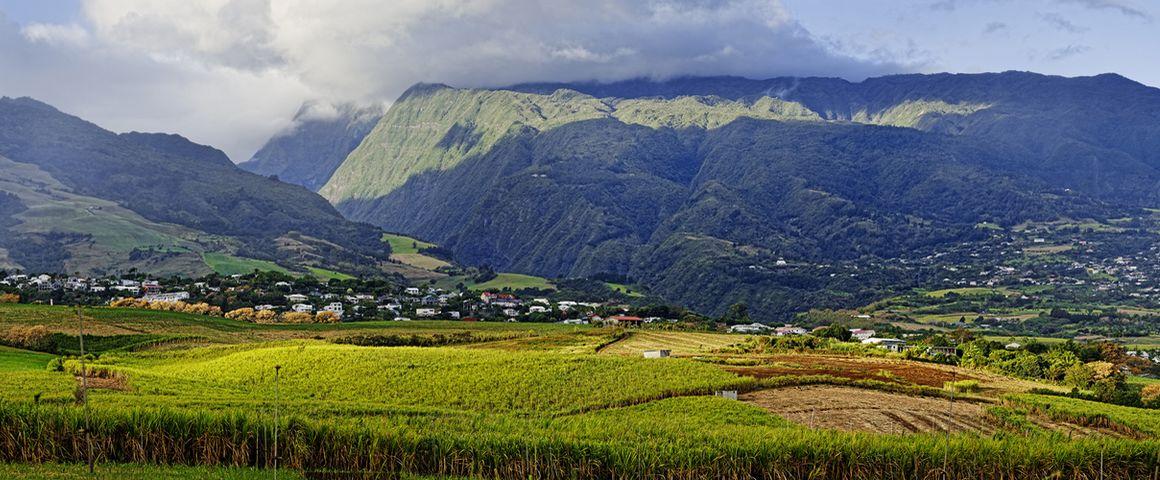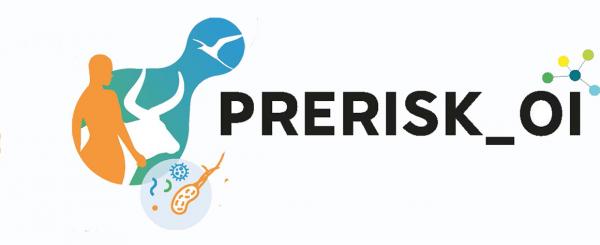- Home
- Worldwide
- Our regional offices
- Réunion, Mayotte and Indian Ocean
- Réunion
Réunion

Agricultural landscape in Réunion © R. Carayol, CIRAD
Research programmes for sustainable development
CIRAD's research in Réunion aims to address food security, health and environmental issues, by means of a territory-based approach. It supports the range of transitions required to adapt to climate change, with the results of its targeted projects being transferred to the beneficiaries and managers involved.
CIRAD's work programme in Réunion is built with those players, guided by priority development needs, from field to laboratory and from local to international level. It supports the strategic role played by Réunion as a "producer of references" in terms of the bioeconomy and as a biodiversity hotspot, and also as a European tropical research platform in the heart of the Indian Ocean.
It also serves to articulate science and practice aimed at boosting agricultural and agrifood production and local or acquired biological resource conservation and promotion, by organizing transfers of knowledge, practices and technologies, notably through the agricultural innovation and transfer networks (RITAs), of which CIRAD is an active founding member.
Unique hosting and experimental facilities
In Réunion, CIRAD has recognized, certified scientific infrastructures that boost its regional attractiveness:
- 14 000 m2 of laboratories, greenhouses and offices across three main sites, in St Denis (La Bretagne) and St Pierre (Ligne-Paradis-Plant Protection Platform; Bassin-Plat)
- 35 ha of experimental plots across four stations (Bassin Plat, La Mare, Ligne-Paradis, Colimaçons).
CIRAD hosts a dozen partner organizations and around a hundred interns and PhD students on its sites. It also receives numerous official visitors every year.
In particular, its hosting infrastructures include:
- The Plant Protection Platform (3P), which is IBiSA-approved, in Saint-Pierre. This centre, specializing in plant health and biodiversity conservation and promotion, has advanced scientific equipment. It is the largest European plant protection research centre in the tropics, and receives scientists from the region and beyond. A major renovation and extension operation was completed in 2021, and CIRAD and its partners now have 6000 m² of laboratories specializing in agroecological protection, enabling it to host international cooperation projects conducted by networks in strategic fields such as epidemiological monitoring, biocontrol and remarkable natural heritage management. The operation was funded by the EU, the Réunion Regional Council, the French State, ADEME and CIRAD.
- The Bassin Plat horticulture and fruit crop station, which has 12 ha of fruit and vegetable experimental plots, along with greenhouses, offices, laboratories and farm buildings. The station specializes in plant production, particularly horticulture: fruit trees, pineapple, banana, market garden crops, vanilla, sugarcane, etc. Its primary aim is to host horticultural research activities, and it is also used to train agricultural advisors and producers. As well as research, it works to conserve and promote planting material, thanks to the Vatel BRC collection, a lychee variety collection, a mango variety and rootstock collection, and a healthy citrus mother plant collection housed in a greenhouse.
- SOERE-PRO and the agricultural biomass analysis laboratory. The SOERE-PRO Réunion facility at the La Mare site is one of the four specific, highly-equipped French experimental field sites in the SOERE-PRO long-term organic waste product observation and experimentation system. The facility, led by CIRAD and the only one of its kind in the French overseas regions, was set up in 2013 for a 20-year period, and has the medium-term aim of achieving a better understanding of agronomic changes in soils and assessing the risks of toxicity and of managing local agricultural biomass within a circular bioeconomy. Alongside the platform, there is a soil and biomass agronomic analysis laboratory, which receives between 5000 and 9000 soil, plant and organic matter samples a year. It was recently approved by the French Ministry of Agriculture to conduct international sample analyses and participate in cooperation projects.
- The Vatel biological resource centre (BRC), which conserves and studies collections of three species groups: vanilla, tropical Alliaceae and lontan vegetables. The vanilla collection at the Vatel BRC has more than 700 accessions in the form of living material (600), dried samples (50) or DNA extracts (50). There are 43 tropical Alliaceae, making the collection of agricultural and heritage interest for Réunion and the countries of the southwestern Indian Ocean. The lontan vegetable collection comprises 35 species of significant heritage value, and is of major economic interest in terms of diversifying vegetable production in Réunion and other parts of the region.
- The agrifood platform. The QUALISUD research unit's laboratories in Saint–Pierre work to help improve the quality of agricultural products from Réunion and the Indian Ocean zone. The platform comprises 160 m2 of laboratories, including a sensory analysis laboratory and a small (100-m2) technology hall. Its research, primarily on fruits (pineapple, mango, lychee, banana, etc), coffee, cocoa, honey, tea and spices (pepper, vanilla, etc) but also on heritage vegetables and vegetables of nutritional interest, is aimed at understanding the mechanisms that affect product sanitary, sensory and nutritional quality in the field and during processing and storage, building processes to optimize that quality, and making it an asset for producing and marketing more competitive products tailored to potential markets.
- The LIANE platform. The interdisciplinary laboratory for digital agriculture (LIANE) was set up to address the new societal issues triggered by global change (climate change, food insecurity, the need to reduce environmental impacts, and disease emergence) by making use of the technological progress made in the field of digital technologies, in terms of agriculture. LIANE aims to work in a coordinated way to design a range of products and services that provide the necessary technical and scientific foundations for the emergence and development of digital agriculture suited to the needs and specificities (whether technical, environmental, social, or economic) of Réunion and the Indian Ocean countries. LIANE is a crucial research and development player based at CIRAD Réunion, working with players in Réunion such as eRcane, ARMEFLHOR, the University of Réunion, the Institut du Numérique de l’Océan Indien, etc. LIANE currently has around 30 researchers and engineers from ten CIRAD research units in Réunion.



























